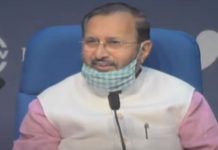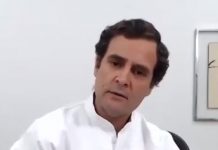If you are not part of the solution, then you are part of the problem,” wrote American psychiatrist Scott M Peck in his debut self-help magnum opus, The Road Less Traveled: A New Psychology of Love, Traditional Values and Spiritual Growth. Selling 10 million copies since its publication in 1978 to become a global phenomenon, the book suggests we can be the solution by “delaying of gratification, acceptance of responsibility, dedication to truth, and balancing”. Millions across the world have by now chalked up a debt of gratitude towards it using its prescriptions to reboot their lives.
From this view, India’s response to Pakistan’s delinquency has been disappointingly dismal since Partition. To be sure, Pakistan’s de facto power holder — its army — has been obsessed with being a thorn in India’s side to keep it perpetually insecure and vulnerable. Mandarins in Islamabad have long admitted to their army’s role in seeding and nurturing deadly armed militancies in Punjab in the 1980s and Jammu & Kashmir since 1989. Indian fears that the ISI, Pakistan’s disingenuous spy agency, is reviving terrorism in the Kashmir Valley, as evidenced in the wanton killing of five Indian soldiers near the border on 6 August, may be well placed.
But is perpetual conniption with which India’s political and chattering classes respond to Pakistani intransigence any way to finding a solution? If it were, that solution would have fetched up long ago. Over the 66 years since they split, India has tried almost everything. Its military intervention broke up Pakistan in 1971. It defeated Pakistan in three other wars. It built nuclear bombs. Its diplomatic outreach helped to irrefragably expose Pakistan’s turpitude in fostering Islamic terrorism. And lately, India has sewed up a relationship with the US, which once blindly sided with Islamabad but has since the 9/11 terror attacks on its soil increasingly leaned on Pakistan to back off from confrontation with India.
Yet, the “Pakistan problem” festers. Can India do more for detente? Yes. It can offer a hand of genuine friendship with out-of-the-box steps backed by the full weight of its self-confidence. Those who believe Pakistan’s raison d’être is to undermine India would find the suggestion treacherous. But Peck would say India, too, is culpable by not being part of the solution. Apart from the extreme anti-India views of a minority (akin to the anti-Pakistan views of sections in India), Pakistan’s core gripes are a slew of psychological and real concerns that New Delhi can assuage with maturity.
Pakistanis tend to think — wrongly, of course — that, unreconciled to the Partition, India seeks to dismember Pakistan. With New Delhi pushing its foot ever deeper in the Afghan snow, Islamabad’s (not unfounded) fear of an Indian death grip around it has heightened. Its fear of hostile armies marching on both its east and west has obligated Pakistan to foster the Afghan Taliban to keep the region in ceaseless violence. Its failure to wrest Kashmir through wars and proxy insurgencies has whetted Pakistan’s resolve to intensify that conflict.
To build confidence in Pakistan and to foment lasting peace, New Delhi should consider a drawdown of its military presence in J&K subject to a treaty with Islamabad, with US nudge if need be, that bars Pakistani military action in that state (or Indian boots would swiftly return). It should push for a dialogue to negotiate disarmament with Pakistan like the US and the former Soviet Union once did. A new government with the participation of the separatists should be installed in J&K, with polls called soon after. India should seek to establish an India-Pakistan-Afghanistan consultation to foster peace after the US-led troops leave Kabul next year.
Alongside, India should radically rewrite its policy on people-to-people exchanges across social, cultural, educational and business sectors. It should facilitate seminars, conferences and exhibitions with tens of thousands participating. It should start the groundwork to flesh out a visa-free regime with Pakistan a la Europe and North America. Utopian? Imagine the unbounded power of an India-Pakistan compact, the energies it would unleash, the savings of billions currently spent on war preparedness. Albert Einstein had said a problem cannot be solved from the level of consciousness that created it. Rebooting India-Pakistan relations demands a new consciousness.
ajit@tehelka.com









